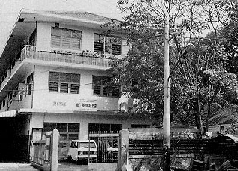 Editor note: In recent years Christian Indonesian are regularly persecuted but perpetrators are rarely caught and brought to justice.
Editor note: In recent years Christian Indonesian are regularly persecuted but perpetrators are rarely caught and brought to justice.Three teenage Christian girls were beheaded and a fourth was seriously wounded in a savage attack on Saturday by unidentified assailants in the Indonesian province of Central Sulawesi.
The girls were among a group of students from a private Christian high school who were ambushed while walking through a cocoa plantation in Poso Kota subdistrict on their way to class, police Major Riky Naldo said.
The area is close to the provincial capital of Poso, about 1000 kilometres northeast of Jakarta.
Naldo said the heads of the three dead victims were found several kilometres from their bodies.
In Jakarta, President Susilo Bambang Yudhoyono ordered the police to begin a hunt for the killers.
"In the holy month of Ramadan, we are again shocked by a sadistic crime in Poso that claimed the lives of three school students," he told reporters at the airport as he prepared to fly to Sumatra island.
"I condemn this barbarous killing, whoever the perpetrators are and whatever their motives." He ordered the security forces to find the killers and maintain order in the region.
Indonesia is the world's most populous Muslim nation, but Central Sulawesi has a roughly equal number of Muslims and Christians. The province was the scene of a bloody religious war in 2001-2002 that killed around 1000 people from both communities.
At the time, beheadings, burnings and other atrocities were common.
A government-mediated truce succeeded in ending the conflict in early 2002, but there have since been a series of bomb attacks and assassinations of Christians.
These included a blast at a market in Poso, a predominantly Christian town, that killed 22 people in May.
Christian leaders have repeatedly accused the authorities in Jakarta of not doing enough to find the perpetrators and bring them to justice.
The Christian-Muslim conflict in Sulawesi was an extension of a wider sectarian war in the nearby Maluku archipelago in which up to 9000 perished between 1999 and 2002.
The Maluku conflict intensified soon after it began with the arrival of volunteers belonging to Laskar Jihad, a newly created militia from Indonesia's main island of Java that was supported by hardline elements of the security forces.
Analysts and diplomats accused senior army commanders of funding and training the militia, which was hurriedly disbanded following the terrorist attacks on the tourist island of Bali in 2002 which claimed 202 lives, including 88 Australians.


No comments:
Post a Comment